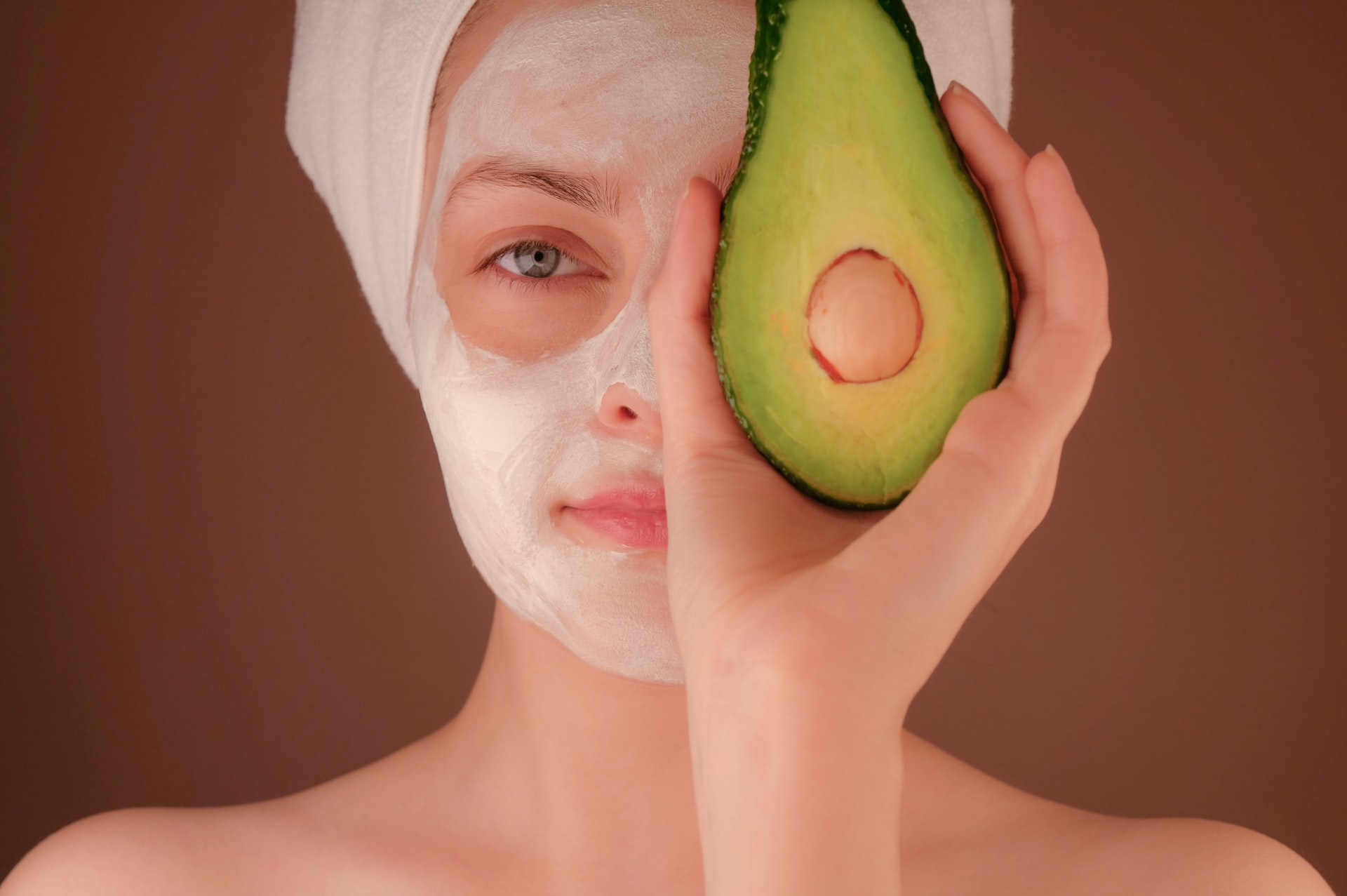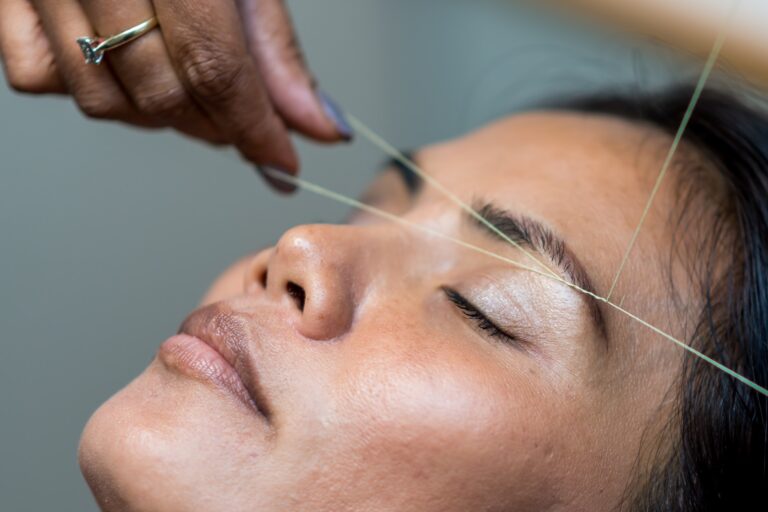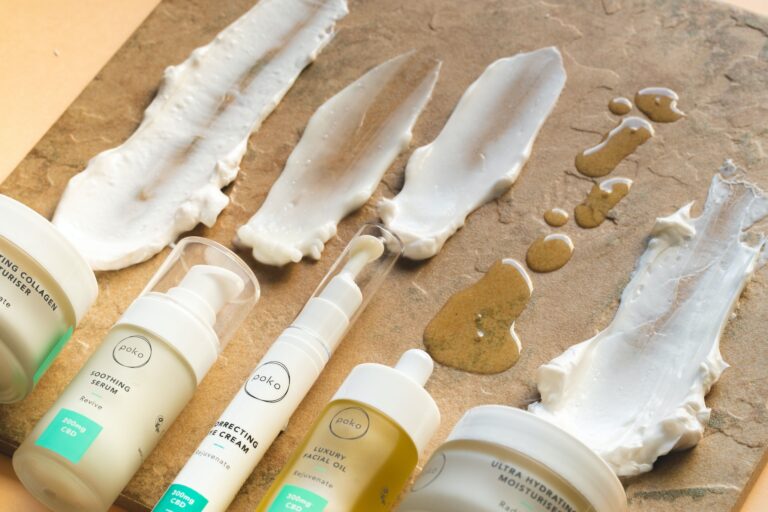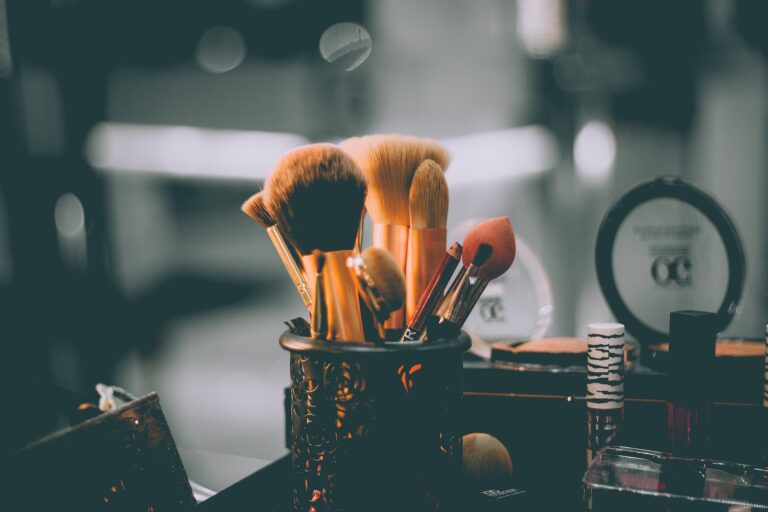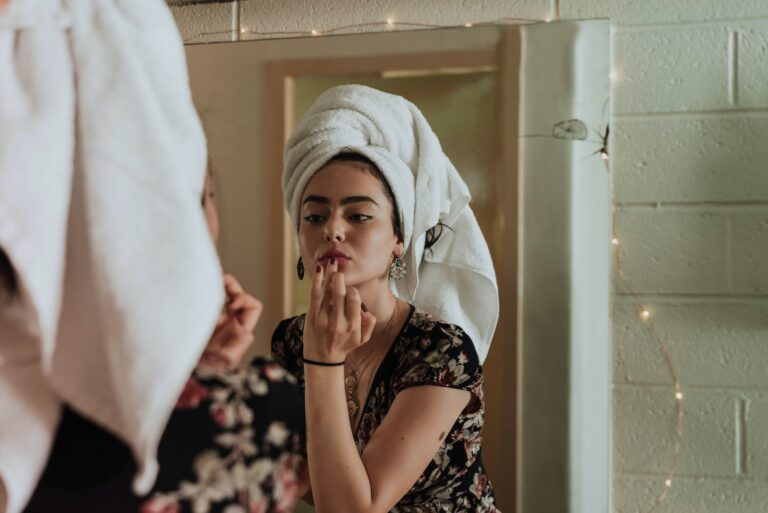Best skin care tips from dermatologists
As an Amazon Associate, I earn from qualifying purchases.
Disclosure: Some of the links in this article may be affiliate links, which can provide compensation to me at no cost to you if you decide to purchase a paid plan. You can read our affiliate disclosure in our privacy policy.
Best skin care tips from dermatologists
Introduction
Let’s face it: We all want a glowing, healthy complexion. But when life gets busy, our skin care routine is often one of the first things to suffer. Maintaining that effortless “I woke up like this” glow can seem like an insurmountable task, but don’t give up yet!
With just a few simple tweaks and tips, you can easily return your skin to its former glory – think of it as a facial makeover without the high cost and lengthy treatment time. When taking care of your complexion, no step should be overlooked.
From the best exfoliants to the most effective moisturizers—we’ve got you covered. Read on for the essential skin care tips to help you get back that natural glow!
What Is a Good Skin Care Routine?
There’s no one-size-fits-all when it comes to skin care, but there are a few essential steps you should take to maintain your complexion. A good skin care routine starts with the basics—cleansing, toning, and moisturizing—and then may add additional steps like exfoliating, serums, masks, or sunscreen.
Cleansing is the foundation of any good routine as it helps remove dirt, sweat, and makeup as well as unclogs pores for healthier skin. Toner helps balance the pH of your skin after cleansing and prepares it for moisturizer. Moisturizer helps replenish hydration and nourish your complexion to keep it looking supple.
You’ll also want to add in occasional exfoliating treatments to help shed away old skin cells and reveal fresh, new skin. Try using serums containing antioxidants or anti-aging ingredients on areas of concern such as wrinkles or dark spots. Masks are also great for targeting specific problems like acne or dryness and providing more intensive treatments than regular skincare routines can offer. Lastly, sunscreen is essential when spending time outdoors to protect your complexion against harsh UV rays that can cause sun damage over time.
How to Choose the Right Cleanser for Your Skin Type
Are you using the right cleanser for your skin type? Without the right cleanser, you may be making it harder for your skin to stay healthy and glowing. It’s important to know what type of cleanser is best for you, so here are a few tips to get started:
-
For oily skin, use a gel or foaming cleanser that will help reduce sebum production and keep your skin free from specific bacteria that cause acne.
-
For combination skin, try an oil-free cleanser that won’t strip your natural oils away.
-
For normal or dry skin, use a creamy facial wash with hydrating ingredients like aloe vera to nourish and protect.
-
For sensitive skin, look for gentle products with natural ingredients like rosemary oil or lavender.
Remember that your skin changes over time—so it’s important to adjust your cleansing habits according to how your complexion looks and feels on any given day!
What Are the Benefits of Moisturizing?
You already know that moisturizing your skin is essential for a healthy complexion, but what are the other benefits? Well, here are some of them:
Soft and supple skin
Adequate hydration from a moisturizer helps to keep your skin soft and supple. Moisturizing helps to create a protective barrier, which helps to keep the skin’s natural moisture in, while also protecting it from environmental factors such as pollution and extreme temperatures.
Reducing fine lines
When you keep your skin hydrated and nourished with a good moisturizer, it plumps up the skin cells, which gives the appearance of smoother, more youthful looking skin. It also helps to reduce the appearance of fine lines and wrinkles.
Improved skin health
Moisturizing on a regular basis not only helps to improve your complexion but also helps to protect against dryness, irritation, redness, and flakiness—all things that can lead to premature aging.
Make sure you follow all these tips if you want to maintain beautiful, healthy-looking skin!
The Importance of Using Sunscreen Every Day
No matter what kind of skin you have, sunscreen should always be a part of your everyday routine. You may think that you don’t need to apply it every day unless you’re going to be out in the sun all day, but that’s not true. Sunscreen actually protects against both UVA and UVB rays, which can damage your skin even on cloudy days.
Protect Your Skin from Sun Damage
If you want to keep your skin looking healthy and youthful, then using sunscreen is essential. It’s the best way to protect your skin from sun damage and the associated signs of aging like wrinkles and dark spots.
Shielding Your Skin From Sun Rays
When choosing a sunscreen, make sure it offers broad-spectrum protection with an SPF of at least 30 or higher. This will provide the best protection against both UVA and UVB rays. Additionally, make sure to reapply as needed throughout the day, especially if you’re going to be out in the sun for extended periods of time.
By taking advantage of these essential skincare tips for sun protection – applying sunscreen every day – you can help protect your skin from harmful UVA and UVB rays and keep it looking soft, supple, and youthful for years to come!
What Ingredients Should You Look for in Skin Care Products?
Then, of course, you’ll want to consider the ingredients in your skincare products. Sure, having a good routine is essential, but that includes choosing the right products.
Here are important ingredients to look out for:
-
Antioxidants: These powerful little molecules help protect your skin from environmental aggressors like pollution and sun damage. One antioxidant to look for is vitamin C, which helps fight off free radicals and even out your complexion.
-
Hyaluronic acid: This helps retain moisture in your skin, which plumps it up and gives it a healthy glow.
-
Retinol: Retinol is derived from vitamin A and helps reduce the appearance of fine lines and texture irregularities. It’s also a powerful anti-aging ingredient.
The key with any skin care product is to use it consistently—don’t just buy something because you saw an ad or heard someone else say it works wonders! Do your research and be realistic about your expectations so you can achieve the best possible results.
Tips for Taking Care of Your Skin During Different Seasons
Different seasons require different skin care techniques. Here are a few tips to help you keep your complexion looking great year-round:
Spring
Spring can be a tricky time for your skin, with drastic temperature changes. During this season you should:
-
Wash your face twice a day with a gentle, non-drying cleanser and lukewarm water
-
Use an exfoliant 1-2 times per week to slough away dead skin cells and unclog pores
-
Moisturize immediately after cleansing, focusing on areas that tend to get dry, like the cheeks and nose area
-
Wear sunscreen of at least SPF 30 every single day
-
Drink plenty of water as warmer temperatures can lead to increased dehydration.
Summer
Summertime means warmer weather and more exposure to the sun’s harmful UV rays. To keep your skin looking healthy during the summer months:
-
Wear a generous amount of sunscreen before going outdoors – aim for SPF 50 – and reapply it regularly throughout the day
-
Stay in the shade as much as possible, especially in peak hours of 10 AM to 4 PM when UV rays are most intense
-
Avoid heavy or greasy makeup – try using a mineral foundation or tinted moisturizer instead
-
Drink plenty of water throughout the day and make sure that you wash off sweat after any physical activity.
Taking the right precautionary steps during each season will help ensure that your skin stays healthy no matter what time of year it is.
Hydrate for Healthy Skin
Drinking enough water is one of the essential skin care tips you should follow if you want to maintain healthy, youthful-looking complexion. Not only does proper hydration help your cells fight off environmental stressors, but it also helps your skin retain its natural elasticity and softness that clouds of dull or tired-looking skin can zap away.
Benefits of Proper Hydration
Proper hydration has a whole range of benefits for your skin, including:
-
Reduced inflammation and redness
-
Helps reduce puffiness
-
Reduces dryness and flakiness
-
Helps keep wrinkles at bay
-
Enhances the skin’s ability to repair itself
-
Enhances overall complexion
-
Improves elasticity of the skin over time
-
Keeps the pH of the skin balanced
-
Keeps oily areas under control to reduce breakouts and blemishes
Remember, water is not enough: you also need to incorporate other fluids (like herbal teas) into your diet as well as non-greasy serums that can help replenish your skin after UV damage and dehydration. And lastly, use a gentle cleanser twice a day to make sure all impurities are removed from your pores for beautiful skin all year round!
Exfoliate to Remove Dead Skin Cells
Exfoliation is one of the most important skin care tips you can follow. Exfoliation removes dead skin cells, allowing your skin to look brighter and smoother. It helps your products work better too, since they won’t be clogged with dead skin.
For best results, exfoliate twice a week with a gentle product that won’t be too rough on your skin. You can make use of chemical exfoliants like AHAs or BHAs, or physical exfoliants like scrubs or brushes. Just make sure that whatever you’re using doesn’t irritate your skin. And it’s important to remember that when it comes to exfoliation, less is definitely more—so don’t overdo it!
What are some good tips for skin-care?
If you’re looking for some essential skin care tips to improve your complexion and keep it looking healthy, here are some great ones to keep in mind:
Cleansing
Cleaning your skin twice a day – once in the morning and at night before bed – is essential for removing makeup, dirt, and sweat buildup that has occurred during the day or night.
Moisturizing
Moisturizing your skin, especially after cleansing, is crucial if you want to achieve a smooth, hydrated complexion. Moisturizing helps lock in hydration and strengthens your skin’s protective barrier to help lock out environmental impurities.
Exfoliating
Exfoliating removes the outer layer of dead skin cells from the surface of your skin, which can leave your complexion looking dull and feeling rough. By exfoliating regularly – about once or twice a week – you can help keep your skin’s texture smooth and even-toned.
SPF Protection
You should always wear sunscreen whenever you venture outside during the daytime, no matter how cloudy it is outside. UV rays can still penetrate through clouds so make sure to apply at least SPF 30 before going outdoors. This will help protect your skin from sun damage and prevent premature wrinkles!
What are the 5 basic of skin-care?
Do you want to keep your skin looking great? As it turns out, there are five basic steps you should take to maintain good skin health. Here’s what you need to know:
Cleanse
The key rule here is to keep your skin clean and free of dirt, oil, and other buildup. Use a gentle cleanser that won’t strip your skin of healthy oils and moisture. Do this twice a day—once in the morning and once at night before bed.
Tone
Toning helps balance the pH of your skin and helps remove any leftover residue. Make sure you use alcohol-free toners, which won’t dry out your skin or cause irritation.
Treat
Treating your skin means using products such as moisturizers, face creams, and serums that help keep the skin hydrated and protect it from damage caused by pollutants and sun exposure. Find a good cream or serum specifically formulated for your skin type, whether it’s oily, dry, or combination.
Exfoliate
This step helps remove dead or damaged skin cells, which can prevent new cells from forming properly. Use an exfoliating product once or twice per week for best results. Just be sure to choose one that is gentle enough not to irritate your skin or cause it too much stress.
Protect
This is arguably the most important step! Always wear sunscreen when going outside (even in wintertime!), as overexposure to UV rays can cause permanent damage to your complexion. And opt for physical sunscreens like zinc oxide instead of chemical ones if possible; they’re much less harsh on sensitive skin
What are the 7 steps of skin-care?
Caring for your skin doesn’t need to be complicated—it’s actually quite simple if you stick to a few key steps:
-
Start by cleansing your skin with a gentle cleanser that won’t strip away its natural oils. Washing your face twice a day (once in the morning and once at night) can help to remove dirt and oils that can cause breakouts.
-
Exfoliate a few times per week to rid your face of dead skin cells and allow new ones to emerge, brightening up your complexion. Use a gentle scrub or exfoliating toner with lactic or glycolic acid for best results.
-
Apply an antioxidant serum to protect against environmental damage as well as reduce inflammation and regulate oil production on the surface of the skin.
-
Follow with an appropriate moisturizer based on your skin’s needs—for dry skin, opt for a hydrating formula with ingredients like hyaluronic acid; for oily/combination skin, look for lightweight options with humectants like glycerin.
-
Wear sunscreen during the day, even if you don’t plan on being in the sun—UVA rays can still reach you even through clouds and windows! Choose an SPF of at least 30 and make sure it includes broad-spectrum protection against both UVA and UVB rays.
-
Remove any makeup before you go to bed (even if it is waterproof!) Makeup can leave residue on the surface of the skin, clog pores and contribute to breakouts if left on too long.
-
Lastly, don’t forget to take time out for yourself! Stress is one of the biggest factors in dull, irritated
How can I improve my skin naturally?
Do you want to naturally improve the texture, clarity, and overall health of your skin? Look no further! Here are some tips that can help you restore your complexion and give it a natural glow:
Exercise
Exercising regularly helps your body stay healthy and improve circulation. This will help keep your skin looking vibrant and youthful by increasing the oxygen flow to your cells. Plus, exercise can reduce stress levels which can in turn benefit your skin.
Eat Well
A balanced diet full of nutritious foods like fruits, vegetables, whole grains, lean proteins and healthy fats can do wonders for your complexion. Eating a diet rich in antioxidants will help to protect the skin from environmental damage while providing essential vitamins and minerals that promote healthy skin.
Stay Hydrated
Drinking lots of water is important for overall health but it’s also key for beautiful skin. Water helps keep the skin hydrated which prevents dryness and wrinkles from forming. It also helps flush out toxins from the body. Aim to drink at least 8 glasses of water every day for the best results.
On-the-go skin care tips
If you’re on the go, you can still take care of your complexion with these simple skin care tips. Make sure to stay hydrated by drinking lots of water, and if that’s not enough, use a moisturizing spray to give your skin an extra boost. Try to keep your skin clean and free from dirt and pollution by wearing a face mask when in public.
It’s also important to protect yourself from the sun’s harmful UV rays by applying sunscreen before leaving the house — even during cloudy days! Choose one that has SPF 30 or higher, and says “Broad Spectrum” on the bottle so you know it blocks out UVA and UVB rays. Reapply after swimming or sweating.
You should also keep up with regular exfoliation, since it helps slough off old skin cells and reveal newer, healthier-looking cells underneath — plus it encourages cell turnover. We recommend exfoliating twice a week with a gentle scrub or chemical exfoliant like glycolic acid – but don’t forget to moisturize afterwards!
Finally, try to take some time for yourself to relax — both physically and mentally — as stress can impact your skin’s health more than you think. Taking a deep breath can make all the difference!
What Can I Do About Acne?
If you’re dealing with acne and want to do something about it, there are a few simple steps you can take to help improve your complexion.
Eat Right
A diet rich in fruits and vegetables, healthy fats, and lean proteins is essential for skin health. Eating the right foods will help supply skin with nutrients and antioxidants that can help reduce inflammation and acne breakouts.
Use Gentle Products
Using gentle skin care products is key for avoiding irritating and damaging the skin. Look for products labeled “non-comedogenic,” which means the product won’t clog the pores, as well as cleansers that are oil-free and alcohol-free.
Avoid Excessive Sun Exposure
Getting too much sun can make acne worse by irritating the skin, so it’s important to limit sun exposure when possible. Wear protective clothing and sunscreen every time you go outside, even when it’s cloudy!
Stay Hydrated
Drinking enough water throughout the day helps keep your skin hydrated, which can reduce inflammation. Increasing your water intake will also help flush out any toxins in your system that could be contributing to breakouts.
Whole body skin care tips
When it comes to skin care, you should never forget about the whole body. As complex as skin care can be, it’s important to remember that head-to-toe skin care is needed for a healthy and glowing complexion. Here are some essential whole body skin care tips to help you uplift your complexion:
Keep hydrated
Your body is made predominantly from water so drinking enough water every day makes sense! Not only will it help keep your organs in good condition, but water also helps keep your skin plump, hydrated and radiant. And don’t forget about eating foods that are rich in water like cucumbers and celery!
Exercise regularly
Not only does exercise keep your heart healthy, but physical activity helps promote a better circulation throughout the body—including the face! Regular exercise helps increase blood flow and brings more oxygen to the skin cells—which is key for bringing out that natural glow.
Get enough sleep
Sleep is essential for helping repair the damage caused by everyday stressors like UV rays and pollutants. And without a good night’s rest, your complexion will show how exhausted you are with dark circles, wrinkles and dullness. Aim for 8 hours of sleep a night and enjoy feeling refreshed with luminous looking skin every morning!
Skin care tips by skin type
No matter what your skin type is, there are some essential care tips to help you achieve that luminous complexion. Let’s take a look at the unique needs of each skin type and what you can do to keep it healthy and glowing.
Oily Skin
Oily skin tends to be more prone to breakouts, so your focus should be on controlling oil production with a gentle cleanser, while still maintaining hydration. Gently exfoliate your skin once every week, and opt for oil-free moisturizers.
Dry Skin
If you have dry skin, you’ll need to make sure it doesn’t become dehydrated by using creamy cleansers and avoiding hot water when washing your face. Make sure you’re using a moisturizer with SPF daily, and don’t forget the night cream!
Combination Skin
The key for combination skin is figuring out which areas are dry or oily so you can adjust your routine accordingly. Start with a gentle cleanser for overall use, then use two separate creams for day and night—one for wet areas (T-Zone) and one for drier areas (cheeks). And don’t forget to exfoliate!
Sensitive Skin
If you have sensitive skin, then stick to mild products that won’t irritate it or strip it of its natural oils. Cleanse twice daily with warm (not hot) water, apply a light moisturizer when needed, and spot treat blemishes as they come up. Exfoliation should only be done very occasionally — if at all — depending on how your skin responds to it.
Skin care: 5 tips for healthy skin
When it comes to taking care of your skin, there are some essential tips to keep in mind that could help you maintain healthy skin, and even improve your complexion. Here are five essential tips to keep in mind:
-
Clean your skin regularly – Cleansing is the key to successful skin care. Make sure to cleanse your face twice a day—it will remove dirt and excess oil, as well as unclog pores and prevent breakouts.
-
Use moisturizer – Applying a moisturizer helps protect the skin’s natural barrier of oils, which can be destroyed by frequent cleansing and over-exfoliation. Look for a moisturizer with SPF or UV protection to protect from the sun’s harmful rays, especially during the summer months.
-
Avoid strong chemicals – Many cosmetics contain harsh chemicals that can damage the skin or cause allergic reactions or rashes. Choose products with natural, gentle ingredients like aloe vera or vitamin E for extra hydration, and look for non-comedogenic products that won’t clog pores or irritate sensitive skin types like acne-prone skin.
-
Hydrate – Drink plenty of water throughout the day to help keep your body hydrated and flush out toxins that are harmful to your complexion. Aim for six to eight glasses per day for best results!
-
Use sunscreen daily – The sun is one of the biggest culprits when it comes to damaging the skin, so it’s important to protect yourself with sunscreen every day—even on cloudy days! Look for broad spectrum UVA/UVB protection and an SPF of 30 or higher; this will help
Why It’s Important to Wear Sunscreen Every Day
Skin cancer is a serious condition that affects millions of people each year. It is important to protect your skin from harmful UV rays to reduce your risk of developing skin cancer. Regular dermatology appointments can help catch any early signs of skin cancer and provide effective treatment options. In addition to sun protection, incorporating collagen-rich foods and products into your skincare routine can help improve the appearance and health of your skin, reducing the risk of premature skin aging.
Can Sheet Masks Help Treat Hyperpigmentation?
If you suffer from hyperpigmentation or scarring, there are many effective treatments available. One popular option is the use of sheet masks, which can help brighten and even out your skin tone. Benzoyl peroxide is another powerful tool for those struggling with acne, helping to clear up blemishes while keeping the skin barrier intact and without stripping it of essential oils.
Maintaining a healthy skin barrier is crucial for achieving great skin. This barrier protects the skin from environmental stressors and helps to retain moisture, keeping the skin hydrated and healthy. By avoiding harsh skincare products and using gentle, non-irritating products, you can keep your skin barrier strong and healthy, reducing the risk of irritation, dryness, and premature aging. With the right skincare routine and a visit to your dermatologist, you can achieve great skin and maintain it for years to come.

